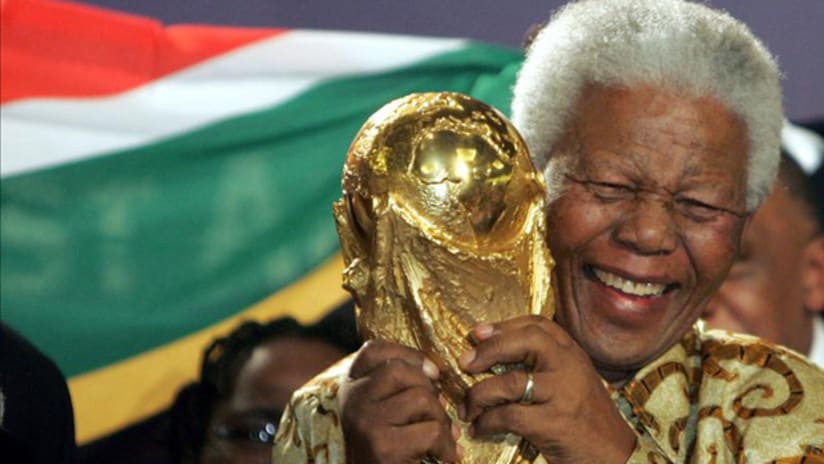KANSAS CITY, Mo. — The day before the US national team faced off against Brazil in the final of the 2009 Confederations Cup, I went to see the South African rugby team, nicknamed the Springboks, play in Pretoria. I was in the company of Brien, a longtime rugby player and fan who had grown up in Johannesburg. He explained some of the rules I didn’t know and the right way to cheer a Springbok try. (It involves a lot of jumping and bear-hugging.)
Afterward, at dinner, Brien explained what it meant to watch South Africa win the rugby World Cup in 1995, just as the nation was emerging from apartheid and into a fragile political and social future.
“It was incredible,” he said. “The whole of South Africa cheered for the Springboks. Everyone. The whites and the blacks.”
He paused.
“Because of Madiba.”
I gave him a look. It was the first time I had ever heard a white person use Nelson Mandela’s nickname. I doubt Brien had used “Madiba” when he was a young fan watching his beloved Springboks win the World Cup, but here, 14 years later, he spoke it as naturally as anything.
But Brien didn’t want to linger on the rugby’s World Cup. He was too into the tournament taking place in his country now. He had never been a big soccer fan, but he had tickets for the final at Ellis Park, the same stadium where South Africa had won the rugby World Cup, and he planned to root for the US.
“You can beat Brazil, I’m sure,” he said.
I chuckled. “I doubt it, but you never know.”
Beyond the game, though, Brien wanted to know what I thought of the Confederations Cup, as a whole. How was the tournament’s organization? Were the stadiums good? And most importantly, will people come next year for the World Cup?
“Yes,” I assured him, “people will come. It’s the World Cup. They always come, no matter where it is.”
“It’s going to be fantastic,” he said.
That optimism for what was to come a year later was ubiquitous in South Africa in the summer of 2009. If the rugby World Cup triumph helped move South Africans toward reconciliation, the soccer World Cup was going to help move South Africa toward the global stage in a way that, as Brien said, rugby never could.
That’s why Brien was so into soccer suddenly. He had never watched Bafana Bafana play or been to an Orlando Pirates match. But now he owned a vuvuzela, and he saw a deeper meaning to it all: Like the rugby World Cup before it, the soccer World Cup was once again forcing South Africans to look at themselves and decide where they want to go.
He looked at me. “That’s because of Madiba, too.”










